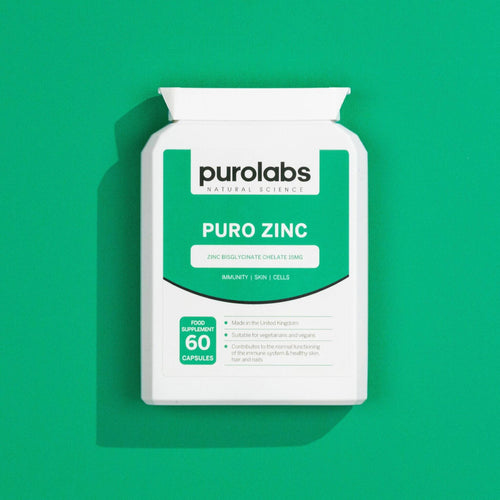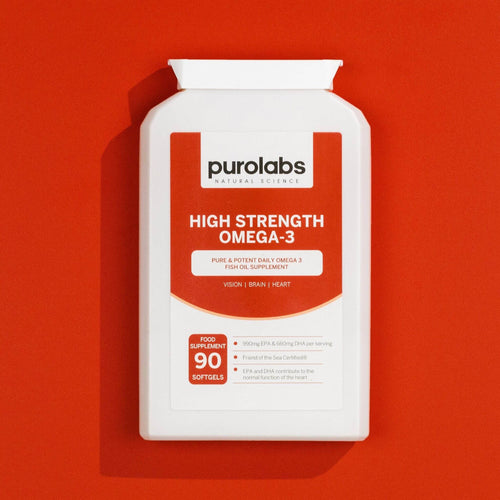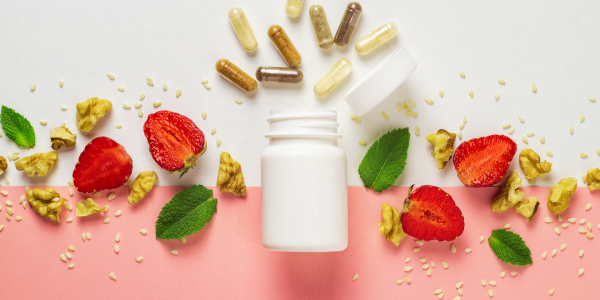In recent years, we are increasingly becoming more educated when it comes what we consume to optimise our health and wellbeing.
Growing awareness of the environmental impact of animal agriculture and the stark rise in chronic health and lifestyle conditions has led many of us to consider an exclusively plant-based diet.
Whilst our choices when it comes to how we eat and what we eat are highly politicized in this current climate, I like to keep an open mind. My approach, especially as it pertains to dietary choices is an inclusive approach. A plant-based diet can be a great choice; however, you must educate yourself to avoid the common pitfalls of a diet that restricts animal foods.
Whilst a plant-based diet is abundant in rich-life giving wholefoods, we must prioritise nutrient intake and more importantly, nutrient absorption. There are a few key nutrients you may need to work a little harder to obtain in the right quantities on a plant-based diet.
If you are considering or are already consuming a plant-based diet, I am here to help you top up common nutrient deficiencies associated with this diet.
Vitamin A
Vitamin A was the first nutrient discovered by scientist Paul Karrer in 1918 and was previously known as ‘fat-soluble A’.
This nutrient contains a whole host of health benefits1:
- Supports healthy vision
- Boosts and regulates the immune system
- Aids reproduction and growth from conception to our later years
- Supports heart, lung, liver and other vital organ repair
You can obtain plant food sources of vitamin A through your diet. Vitamin A rich plant foods include:
- Carrots
- Butternut squash
- Pumpkins
- Sweet potatoes
- Dark leafy greens
- Mangoes
- Papayas
However, a percentage of the population lacks the enzyme (beta-carotenoid-15,15'-dioxygenase) required to convert beta-carotene into retinal, to be utilised effectively by the body2.
Long-term plant food intake plus an inability to convert plant vitamin A into retinal can lead to vitamin A deficiency. Deficiency in this nutrient can lead to a reversal in the above health benefits and can be incredibly detrimental to our health.
Vitamin A supplementation, as a standalone nutrient or as part of a multivitamin is a reassuring way to ensure that this nutrient is topped up and to reduce the risk of health benefits associated with vitamin A deficiency.
Zinc
Zinc is a fantastic nutrient and plays a starring role in supporting healthy hormone function. Zinc also3:
- Helps speed up wound healing
- Aids the body to process carbohydrates, fat and protein from the diet
- Makes new cells and helps in a number of enzymatic processes in the body
The recommended daily intake of zinc is 7-9mg. Whilst a varied diet and zinc deficiency is less common, it is found in more abundance through animal foods. To put this into perspective, you would need 100g of zinc-rich pumpkin seeds to meet your daily need.
In order to ensure that you have enough zinc on a plant-based diet, supplementation can be incredibly beneficial.

Zinc
Iron
Not all iron containing foods are made (or absorbed) equally.
Haem iron, which is sourced from animal foods is more readily absorbed and utilised by the body than its plant-counterpart. Studies show that haem iron can be absorbed up to 35% better than non-haem (plant) iron4.
Iron is a vital nutrient required for the formation of red blood cells. An iron deficiency significantly contributes to the increased risk of iron deficiency anaemia in those who eat a plant-based diet5.
Signs of iron deficiency anaemia include6:
- Unexplained extreme fatigue/weakness
- Pale skin
- Chest pain and/or shortness of breath
- Cold hands and feet
- Brittle nails
- Poor appetite and/or unusual cravings for non-foods such as ice, dirt or starch
Whilst eating non-haem iron with a vitamin C rich food can help improve absorption, it may still leave you at risk of anaemia. I do strongly recommend that you consider supplementing with iron if you are considering or are already consuming a plant-based diet.

Iron Complex
Omega 3
Omega 3 is another nutrient that is harder to obtain through a plant-based diet.
Whilst Omega 3 containing plant foods such as walnuts, flaxseeds and chia seeds are dietary sources of this nutrient, they contain α-Linolenic acid (ALA); the preformed version of omega 3. ALA is a fatty acid found in plant foods which needs to be converted into EPA and DHA to be utilised for its health benefits.
Again, certain individuals do not carry the genetic enzymes required to convert ALA into EPA & DHA and this can potentially lead to omega 3 deficiency. EPA & DHA are vital for brain and eye health and contain a host of other health benefits7:
- Required for proper immune function
- Needed for foetal brain development
- Beneficial for cardiovascular function
- Studies show that they may even help to reduce/delay the onset of dementia
EPA + DHA rich food sources are fatty fish, as the fish have converted preformed omega 3 into a source of omega 3 that humans can digest without the enzymes required for conversion.

Omega-3
B12
Vitamin B12, also known as cobalamin, is a necessary nutrient required by the body for many functions, from physical to psychological. It is a nutrient that our body cannot produce, therefore it is important to top up your B12 stores through diet and/or supplementation.
B12 is a vital nutrient required for many bodily processes8:
- Supports nervous system health
- Needed to make DNA
- Required to make red blood cells
- Helps to prevent megaloblastic anaemia
- Important for motor neuron function
- Helps to improve digestion
Whether you agree or disagree with the above nutrient recommendations, it is widely accepted that B12 deficiency is a common nutrient deficiency in those consuming a plant-based diet.
B12 is found in negligible amounts in plant foods, with the dietary source of this vitamin obtained by ingesting animal foods.
If you are considering switching to a vegan diet, B12 supplementation is an absolute must.

Vitamin B12
Beware of Highly Processed Plant Foods
Due to the growing popularity of plant-based eating, the food industry has responded by producing ultra-processed (UPF) meat-alternatives. These foods generally try to include added protein to combat a potential drop in protein and mimic the taste of its animal-based alternatives. However, these foods are generally high in sodium and/or sugar to replicate the taste of animal foods and are packed with poorly digested ingredients.
Ultra-processed foods have also been linked to9:
- An increase in cardiovascular diseases
- Increased obesity
- Higher risk factor for type 2 diabetes
If you are new to a vegan diet, you can obtain protein through a number of plant foods, and opting for UPFs will take a toll on your health and vitality long-term.
High protein plant foods include10:
- Buckwheat
- Green peas
- Quinoa
- Brown rice
- Lentils
- Chickpeas
- Peanuts
- Tofu/tempeh
- Chia seeds
Be sure to mix up your plant-proteins to obtain all 9 amino acids required for protein synthesis aka protein absorption.





















